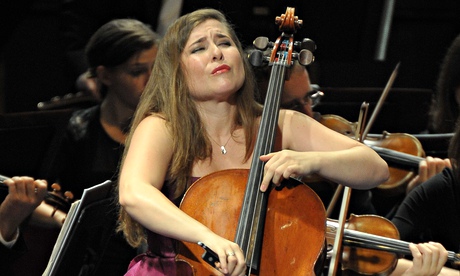
Nobody does Proms encores like the Czech Phil. The Czech repertoire is shot through with dances whichever way you cut it, and Jiří Bělohlávek's orchestra rounded off this programme with a generous three of them: a Dvořák Slavonic Dance, a scurrying Skocna by Smetana, and Nedbal's Valse Triste, all delivered with effortless poise and style.
In fact the whole of the second half had, in its way, been one long dance. "The apotheosis of the dance" is how Wagner famously described Beethoven's Seventh Symphony, and that is how the work sounded here under Bělohlávek's neat direction. The phrasing was fluid, the playing elegant; but nothing mattered so much as the rhythm, whether it came courtesy of the lower strings pushing their way onwards over the higher violins as the slow movement built up its juggernaut momentum, or the horns unleashing brief but jubilant fanfares in the final pages.
If the orchestra hit its real stride only in the second half, there was some refined playing in the first half too. The overture to Janáček's bleak, prison-set opera From the House of the Dead brought intensity, especially from the two solo violins at the start, and apt sound effects from a percussion player shaking his chains, but the piece itself seemed to tick the Czech box rather than fit with the rest of the programme.
It was a world away from the romantic breadth of Dvořák's Cello Concerto, especially with the solo part played with such focus and sweep as it was here, by Alisa Weilerstein. They all recently recorded the work together, and it showed – perhaps not so much at the beginning, when things took a little while to settle, but very much so in the spacious slow movement, beautifully drawn out by Weilerstein and with the orchestra in complete sympathy. Weilerstein's encore, a solo Bach Sarabande, was from the same mould – smooth, deliberate and perfectly controlled.

